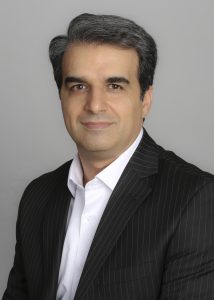U of T scientist co-leads human genome database project, Iranome, in the Middle East
April 16/2018
By: Sarah Warr, Women’s College Hospital
With the completion of the human genome project in 2003, several genome databases have been made available worldwide yet, all of these databases lack representation from many ethnic groups including populations living in Middle East. To address this gap, Mohammad R. Akbari, Assistant Professor of Epidemiology, is co-leading a new genetic database project in the Middle East, Iranome.
Iranome is a human genome variation database of eight major ethnic groups that live in Iran and other neighbouring countries in the Middle East. The database is the first of its kind for this population of approximately 500 million people. These individuals represent a region expected to have rapid population growth in the near future.
Iranome was developed in collaboration with Dr. Hossein Najmabadi, director, Genetics Research Centre at the University of Social Welfare and Rehabilitation Services. To create the database, whole exome sequencing was performed on 800 individuals from the eight major ethic groups in Iran including Arabs, Azeris (Turks), Balochs, Kurds, Lurs, Persians, Persian Gulf Islanders, and Turkmen.
“Many genetic variations are ethnic-specific and need representation in DNA mutation databases in order to build a complete picture of the human genome,” said Dr. Akbari, director of the Research Molecular Genetic Laboratory at Women’s College Research Institute (WCRI).
“Individuals of Middle Eastern decent will now have potentially access to new genetic technologies and associated medical advances based on their unique genetic variations.”
The project investigators hope that Iranome will help realize the potential of precision medicine to improve prevention, diagnosis and treatment of certain disorders in this underrepresented population.
Click here for more information on the project and the complete database.
